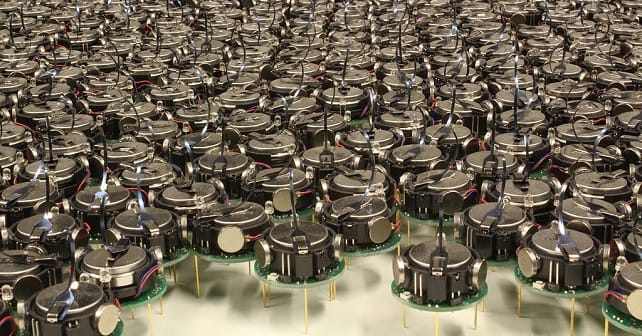The Luddites had a point

No, machines are not taking over the world. Nor should we stop progress. But people are too quick to dismiss anyone who worries about job -killing technology as a “Luddite.”
It seems too facile a label when you consider how robotics, drones, automation, machine learning and cognitive computing have rapidly advanced.
The Luddites who smashed up industrial machines in the early 1800s had reason to be worried. While the mills and other labor-saving innovations of the time ended up contributing to longer-term improvements in living standards, those machines did also kill the livelihoods of many skilled artisans.
We’ve seen similar developments today, but there’s a difference – it’s happening much faster. For example, when Instagram was acquired by Facebook in 2012, the young photo-sharing company had only 13 full-time employees. At the same time, the printed photo industry collapsed, taking – in the case of Kodak alone – 13 factories and 47,000 jobs down with it.
No one intended that to happen. But that’s an example of what Andrew McAfee and Erik Brynjolfsson, both researchers at the Massachusetts Institute of Technology, call “The Great Decoupling.” Authors of Race Against the Machine and The Second Machine Age, they argue that recent advances in digital, robotic and AI technologies are unquestionably increasing productivity and making the overall “economic pie” bigger. “But there is no economic law that everyone, or even most people, will benefit.”
In a comparatively old book, The New Barbarian Manifesto, Professor Ian Angell argued way before the dotcom boom that the information age would create enormous divides between rich and poor.
McAfee and Brynjolfsson suggest we’ll see three sets of winners and losers in the economy. On the winning side will be high-skilled workers, capital and “superstars.” On the losing end will be low- and mid-skilled workers, labour and “everyone else.”
It’s been said a lot before – but staying on top of digital and data skills is essential to keep economies competitive.
In 2013, a study of 702 occupations by two researchers at the University of Oxford concluded that computerization threatened a significant portion of those. “According to our estimates, about 47 percent of total US employment is at risk,” Carl Benedikt Frey and Michael A. Osborne noted. They also found that, the lower-paid an occupation was and the less education it required, the more threatened it was.
But the smarter technology becomes, the higher up the occupational ladder that threat is likely to climb. As recent innovations have shown, professions from journalism to law to medicine are no longer safe from automation, computerization and robotics.
A news-writing algorithm developed by the tech company Automated Insights, for instance, produced more than one billion articles last year. IBM’s Watson cognitive computer, which has already beat a human on the game show Jeopardy! and outperformed human oncologists in cancer diagnoses, is now providing law research services for attorneys. And an executive recruiting firm is now using an algorithm to help it assess the qualifications of potential C-suite occupants.
Saying that, Automated Insights has noted that its “robot reporter” hasn’t, to the company’s knowledge, put one real-life journalist out of work — the firm argues that algorithm-generated articles simply free up human reporters to spend less time on dull, numbers-heavy news and more on insightful shoe-leather reporting. And there aren’t yet any reports of hospitals replacing doctors with supercomputers, or law firms giving up their partners for the cloud.
But as McAfee and Brynjolfsson point out, proceeding with business as usual won’t prevent a growing number of humans from being displaced by their “computer overlords.” Nor is the question of what to do about a potential rise in permanent, systemic unemployment one that’s finding answers in big-data analytics.
Back in the Luddites’ days, a brutal crackdown by the government put a quick end to the anti-machine protests. However, it’s likely the out-of-work artisans’ sentiments wouldn’t have changed over the long term had not new employment opportunities arisen to replace their old ones. Lacking a similar, large-scale rise in new opportunities today, we will need smarter leadership and policies to smooth the way through the next Machine Age.




